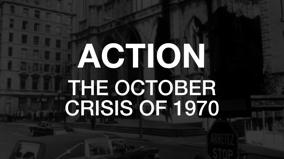New release
Coming
None
1867 and After
1950
11 min
Leaving soon
In this short film, a curious high school civics class has a lot of questions about Canadian history. Suddenly, while the class is visiting Robert Harris’ famous painting The Fathers of Confederation, John A. MacDonald comes to life from the painting and speaks to the students, explaining the Canadian Constitution and the reasons for it. This lively animated meditation on history and art is an engaging portal to the lessons of the past.

Details
In this short film, a curious high school civics class has a lot of questions about Canadian history. Suddenly, while the class is visiting Robert Harris’ famous painting The Fathers of Confederation, John A. MacDonald comes to life from the painting and speaks to the students, explaining the Canadian Constitution and the reasons for it. This lively animated meditation on history and art is an engaging portal to the lessons of the past.
-
directorDonald Peters
-
scriptDonald Peters
-
producerMichael Spencer
-
photographyRobert Humble
-
editingDonald PetersDenys Gagnon
-
narratorFrances Peddie
-
musicEldon Rathburn
















